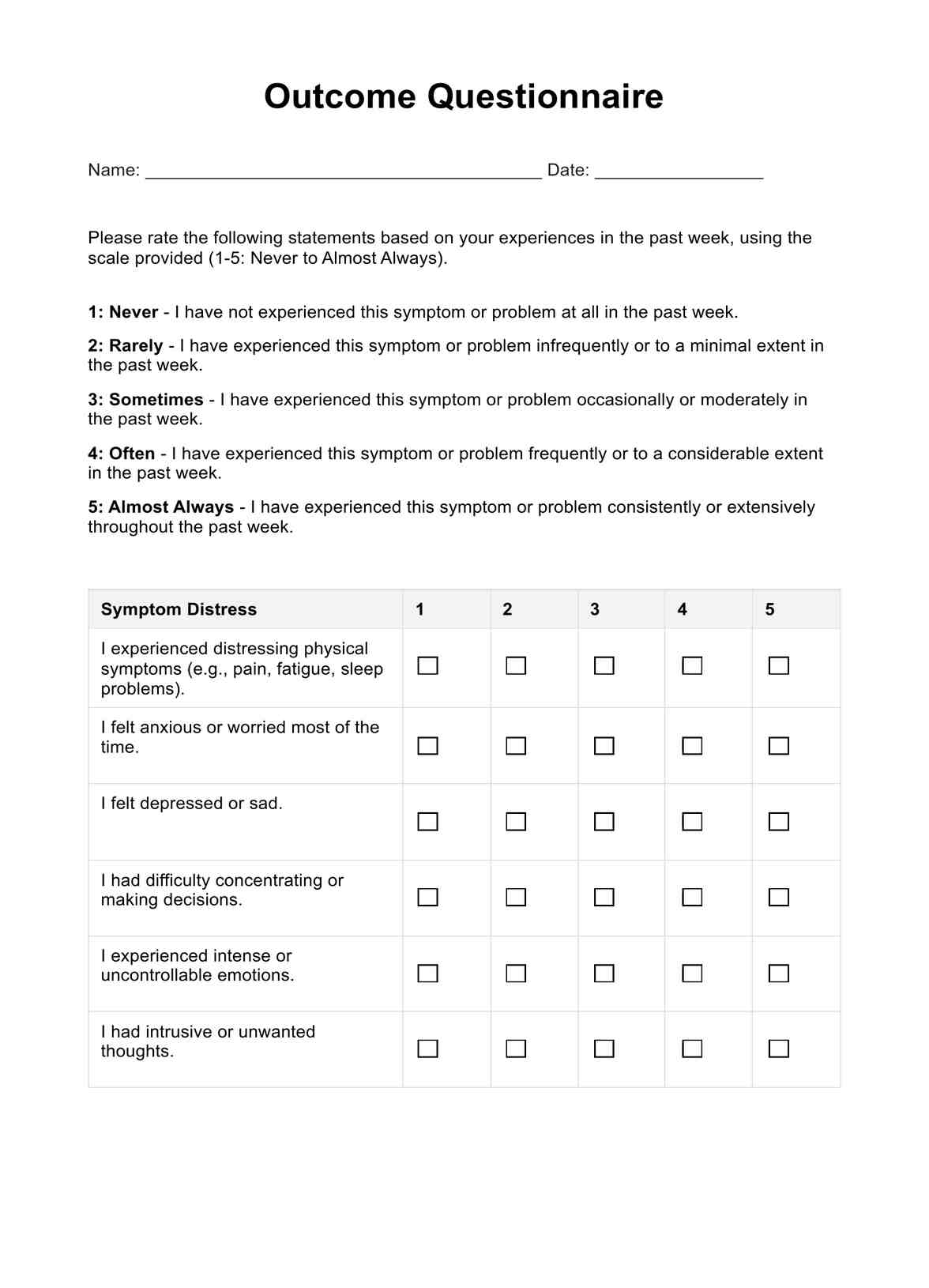The Outcome Questionnaire (OQ) is employed by various professionals, including psychologists, psychiatrists, social workers, counselors, and researchers. They utilize the OQ to assess patient progress in therapy, monitor treatment effectiveness, and evaluate the outcomes of different interventions.

Outcome Questionnaire
Here’s a free printable Outcome Questionnaire, a reliable tool in psychotherapy to help someone on a journey of understanding and transformation.
Outcome Questionnaire Template
Commonly asked questions
The OQ can be administered at any point during psychotherapy, but it is typically used at the beginning of treatment to establish a baseline and regularly throughout therapy to track progress. It can also be employed at the end of treatment to assess overall therapy effectiveness.
It consists of 45 items that prompt patients to rate the frequency of symptoms or problems experienced in the past week on a scale of 1 to 5. The scores obtained can be manually or electronically calculated and serve to compare current and initial status, track progress, identify areas of difficulty, and inform treatment decisions.
EHR and practice management software
Get started for free
*No credit card required
Free
$0/usd
Unlimited clients
Telehealth
1GB of storage
Client portal text
Automated billing and online payments











